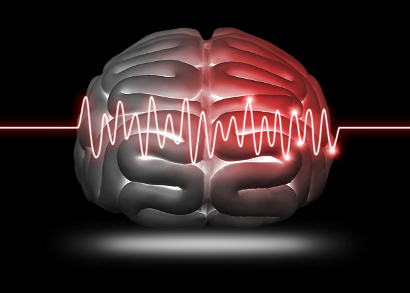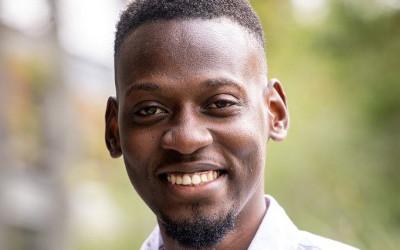OU research to trial wearable technology for neurological conditions

OU researchers are taking wearable technology for the rehabilitation of people with neurological conditions out of the lab to trial it with new participants in outdoor settings.
OU PhD student, Riasat Islam in the OU’s School of Computing and Communications, is drawing on research by Dr Simon Holland, OU Senior Lecturer in Computing, which shows that people who are recovering from neurological conditions such as stroke and brain injury, show improvements in how they walk when they use rhythmic haptic wearable devices for two weeks. The word haptic means communication by sense of touch and in this case the wearer can feel rhythmic cues in each limb.
Dr Holland, Theodoros Georgiou (who recently defended his PhD at the OU) and the team have developed haptic bracelets, which are lightweight wearable devices, capable of monitoring and analyse gait in real time and which provide rhythmic haptic cueing (RHC) in the form of vibrations on alternating legs.
“We designed and built haptic bracelets purely for musical purposes,” said Dr Holland. “But we discovered that these are rich communications devices with uses in quite unexpected areas such as rehabilitation for Parkinson’s disease and stroke.”
Watch the video of Dr Holland’s research to find out more about how these haptic devices work:
Now, as part of his PhD, Riasat is going on to assess how these haptic devices will work in outdoor environments where there are other sensory distractions.
He said: “I have just completed the first study outside of the lab and the participants showed substantial improvements in how they walked as a result of using a wearable haptic device for a minimum of 10 minutes a day over a two-week period.”
The researchers seek participants for further research, and are calling for people living near the Milton Keynes area, who are recovering from a neurological condition, have completed their NHS treatment and are keen to improve their gait. The research will begin in July.
Riasat will present a paper on this topic: Wearables for Long Term Gait Rehabilitation of Neurological Conditions at a workshop at ACM CHI Conference on Human Factors in Computing Systems, which takes place in Montreal from 21-26 April 2018.
Find out more about OU research in Computing and Communications.
Quarterly Review of Research
Read our Quarterly Review of Research to learn about our latest quality academic output.

Contact our news team
For all out of hours enquiries, please telephone +44 (0)7901 515891
Contact details